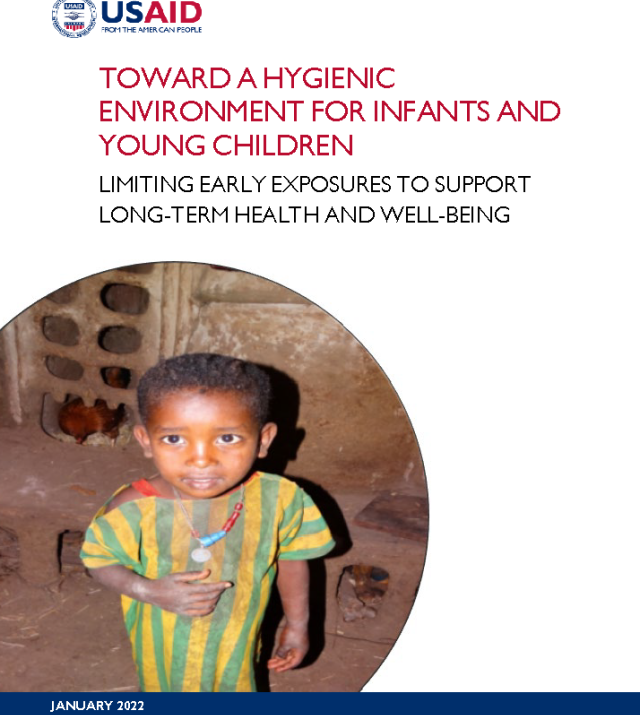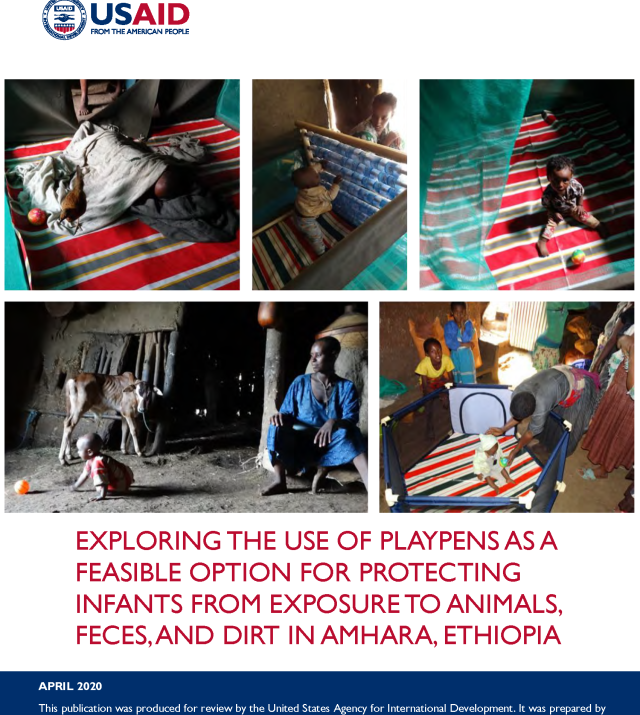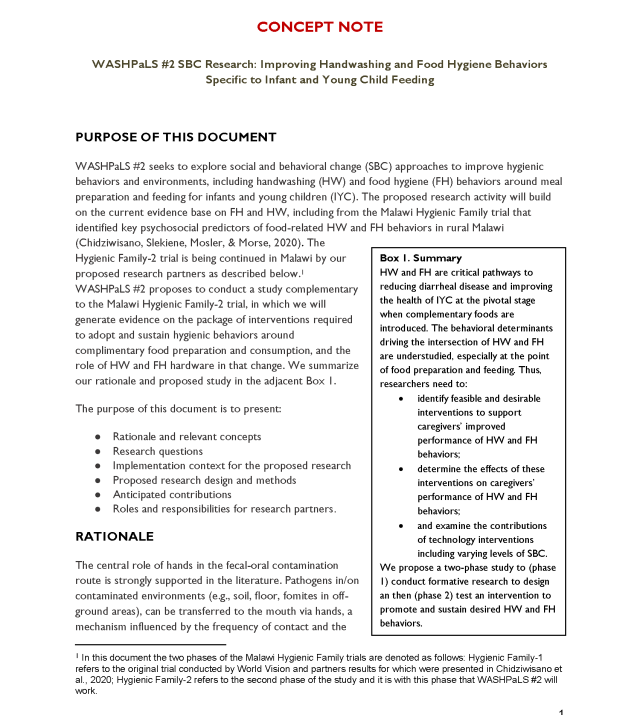
A randomised controlled feasibility trial of a BabyWASH household playspace: The CAMPI study

Final height in adults results from both genetic and environmental factors which support linear growth in childhood. Conversely, adverse influences which begin in utero and continue through puberty can lead to growth failure. This includes the cyclical relationship between infection and nutrition. Symptomatic infection is common during early years in low-income countries, and repeated diarrhoea impairs growth, weight gain and long-term cognitive development. Moreover, enteric infections which are asymptomatic, but which result in subclinical enteropathy are also associated with growth shortfalls – suggesting infection affects development without overt outcomes like diarrhoea. Population-level nutrition and hygiene status are thus critical for proper growth but are not sufficient alone: where there are widespread infection and inflammation, the effect of nutrition on growth is seriously compromised. Indeed, the modest effects on growth in nutrition interventions suggests that a combination of recurrent infections, chronic inflammation, and gut enteropathy limit the effects of nutrition.
Thus, randomised controlled trials (RCT) are testing water, sanitation, and hygiene (WASH) interventions alongside supplementary nutrition to improve infant health.

